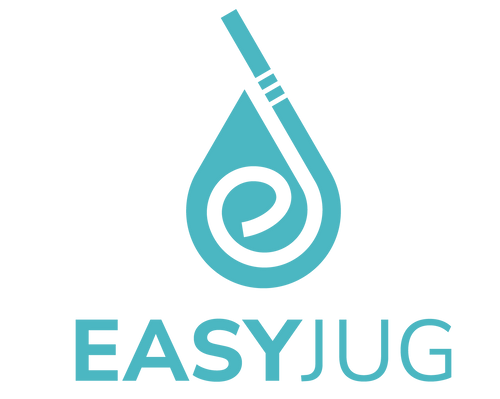As a new parent, you may be wondering when is the best time to stop burping your breastfed baby. This is a common concern, especially as you navigate the early months with your newborn. Burping is an important part of the feeding routine, helping to release trapped air and prevent discomfort in your baby’s stomach. But when does burping become unnecessary? In this post, we will explore everything you need to know about burping breastfed babies, including when to stop, signs to look for, and how to ensure your baby remains comfortable and happy.
Understanding the Need for Burping
When babies feed, whether they are breastfed or bottle-fed, they can swallow air along with milk. This can cause gas bubbles to form in their stomach, leading to discomfort or a gassy baby. For breastfed babies, the amount of air swallowed is generally less than for bottle-fed babies due to the more controlled flow of breast milk. However, each baby is different, and some breastfed babies may still swallow a lot of air, particularly if they have a fast letdown or are in a poor latch position.
Burping helps release this trapped air, reducing the risk of gas buildup and discomfort. It is also an effective way to prevent spit-ups or even more serious issues like gastroesophageal reflux disease (GERD).
When Should You Stop Burping Your Breastfed Baby?
There isn’t a definitive age for when you should stop burping your breastfed baby, as it can vary from baby to baby. However, most experts, including those from the American Academy of Pediatrics, suggest that burping is most crucial during the early months of life. Typically, by the time your baby is around 4 to 6 months old, they may no longer need to be burped regularly. At this age, their digestive system has developed enough to handle feeding without the buildup of gas, and they may start to burp on their own naturally.

Signs It Might Be Time to Stop Burping:
- Baby Shows Fewer Signs of Discomfort: If your baby is no longer showing signs of discomfort, such as crying, arching their back, or pulling their legs up to their tummy during or after feeds, this may be a sign that they no longer need to be burped as often.
- Baby Can Sit Upright: Once your baby can sit upright on their own or with minimal support, they are in a better position to release any air swallowed during feeding naturally.
- Less Frequent Spit-Ups: If you notice a reduction in spit-ups or no longer need to use a burp cloth frequently, this could indicate that your baby has outgrown the need for burping.
Different Techniques and Positions for Effective Burping
Until you decide to stop burping your baby altogether, here are some of the most popular methods and positions for effective burping:

-
Over the Shoulder: Place your baby’s chin on your shoulder, supporting their head and neck with one hand. Use the palm of your hand to gently pat or rub their back in a circular motion.

-
Sitting Position on Your Lap: Sit your baby upright on your lap, supporting their chest and head with your free hand. Gently pat their back with your other hand.

-
Lying Face Down Across Your Lap: Lay your baby face down across your lap with their head slightly elevated and supported by your hand. Gently rub or pat their back.

- Rocking Chair Technique: Sit in a rocking chair and gently rock back and forth while patting your baby’s back. This soothing motion can help release trapped air and is a good idea if you have a colicky baby or a sleepy baby who needs a little extra comfort during a burping session.
How to Tell If Your Baby Still Needs Burping
Pay attention to your baby's cues during and after feeding. If your baby becomes fussy, arches their back, or seems uncomfortable, it may be a sign that they need to be burped. Additionally, if your baby frequently spits up or exhibits signs of infant reflux, continue to burp them after feeding sessions to help alleviate these symptoms.
What If Burping Isn’t Helping?
If you’ve tried different positions and techniques and your baby is still experiencing discomfort, it could be due to other factors such as a sensitivity to certain foods in your diet (like dairy products) or even a medical condition such as gastroesophageal reflux disease (GERD). In such cases, it’s always best to seek professional medical advice from your healthcare provider or a pediatrician.
How Staying Hydrated Helps Reduce Your Baby's Gas: The Crucial Role of Mom's Hydration in Baby's Comfort
While there are several factors that contribute to baby gas, one often overlooked aspect is the mother’s hydration level. Staying well-hydrated is not only vital for your own health but also plays a significant role in supporting your baby’s digestion and reducing gas.
Here’s how hydration may help:
1. Promotes Healthy Digestion for Both Mom and Baby:
When a breastfeeding mother stays well-hydrated, it helps maintain an optimal flow of breast milk. Proper hydration ensures that the breast milk contains the right balance of water, fats, and nutrients, which is crucial for the baby's digestion. If a mother is dehydrated, it could potentially impact the milk's composition, making it thicker or less balanced, which might contribute to digestive discomfort in the baby, including gas.
2. Reduces the Risk of Dehydration-Related Issues:
Dehydration in the mother can lead to a decrease in milk supply. When a baby has to work harder to get milk or gets less milk during a feeding, they may swallow more air. This can result in increased gas and discomfort for the baby. Staying hydrated helps maintain a steady milk supply, which ensures the baby gets enough milk with a more consistent flow, reducing the likelihood of swallowing excess air.
3. Improves Breast Milk Flow and Letdown Reflex:
Hydrated mothers are more likely to have a smoother and more efficient letdown reflex. A more controlled letdown can help prevent a baby from gulping too quickly or swallowing air, which is a common cause of gas. The more natural the feeding experience, the less likely the baby is to swallow air, leading to less gas.

4. Supports Mother’s Nutrition:
Good hydration supports overall nutrition. Mothers who are well-hydrated are often better able to maintain a balanced diet, which directly affects breast milk composition. A balanced diet with adequate hydration supports digestive enzymes in breast milk that aid the baby's digestion and reduce gas and colic.
5. Aids in Preventing Constipation for the Mother:
While it might not directly relate to baby’s gas, a hydrated mother is less likely to experience constipation. If a mother is constipated, straining can sometimes make breastfeeding uncomfortable, potentially affecting milk flow. This can indirectly affect the baby’s feeding experience, possibly leading to more gas.
Why EasyJug is the Best Water Bottle for Breastfeeding Moms:
Hydration is crucial for breastfeeding moms, not just to maintain a steady milk supply, but also to support your baby’s digestion and reduce gas. EasyJug is thoughtfully designed to make staying hydrated effortless and convenient for nursing mothers:
- Large Capacity: Provides ample water storage to keep you hydrated through extended breastfeeding sessions, helping to prevent dehydration that can affect milk quality and flow.
- Ergonomic Design: Comes with a 47-inch long straw, allowing you to drink easily from any nursing position, even while lying down, without disturbing your baby.
- Leak-Proof Straw Feature: The straw can be clipped securely to the lid or even to your clothing, making it leak-proof and ensuring you have quick, easy access to water whenever you need it.
- BPA-Free and Safe: Made from high-quality, BPA-free materials, ensuring your hydration is both safe and healthy, with no harmful chemicals passing to you or your baby.
With EasyJug, you can easily stay hydrated, which is key to producing quality breast milk and minimizing gas discomfort in your baby. Make EasyJug an essential part of your breastfeeding routine today!
More Articles You May Be Interested In:
As a new mom, you’re constantly learning and looking for ways to make your journey smoother and more enjoyable. Here are some other articles that might help you navigate the early days of motherhood:
-
How to Help Newborn with Gas: Tips for New Moms
Dealing with a gassy newborn can be challenging, but there are many effective ways to provide relief. From different burping techniques to gentle tummy massages and the best positions for feeding, this guide offers practical tips to help reduce gas and keep your baby comfortable. -
Nipple Pain? When Does Breastfeeding Stop Hurting
Breastfeeding can come with its own set of challenges, including nipple pain. Understanding why breastfeeding can hurt in the beginning and knowing when it typically eases up can help you stay on track. This article explores common causes of nipple pain and offers strategies for relief, so you can enjoy a more comfortable breastfeeding experience. -
Probiotics for Breastfeeding: Gut Health Benefits and Safety
Probiotics have become a popular topic when it comes to gut health, but what about their role during breastfeeding? Learn about the benefits of probiotics for both mom and baby, how they can support digestive health, and what safety considerations to keep in mind. This article provides insights into how probiotics can be a valuable addition to your breastfeeding journey.
Conclusion: Trust Your Instincts and Your Baby’s Cues
While there is no set rule for when to stop burping your breastfed baby, it often becomes less necessary as your baby grows older and their digestive system matures. Keep an eye on your baby’s cues and adjust your routine as needed. Remember, every baby is unique, and what works for one may not work for another. Ultimately, the best thing you can do is to remain attentive to your baby’s needs and seek guidance from healthcare professionals whenever you have concerns.
At EasyJug, we’re here to support you every step of the way. Our products are designed to make the journey of breastfeeding and early parenthood as comfortable as possible. Explore our range of breastfeeding-friendly hydration solutions today to find the perfect companion for your feeding routine.






